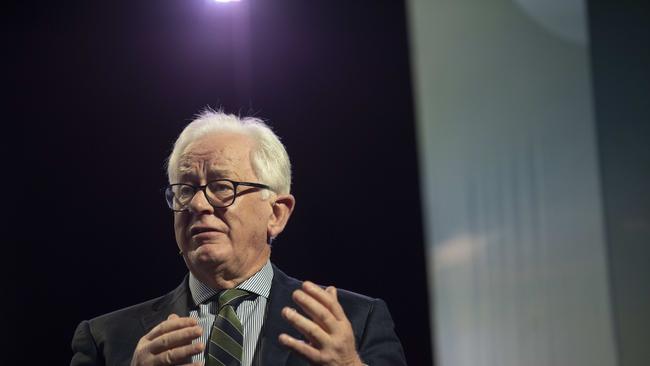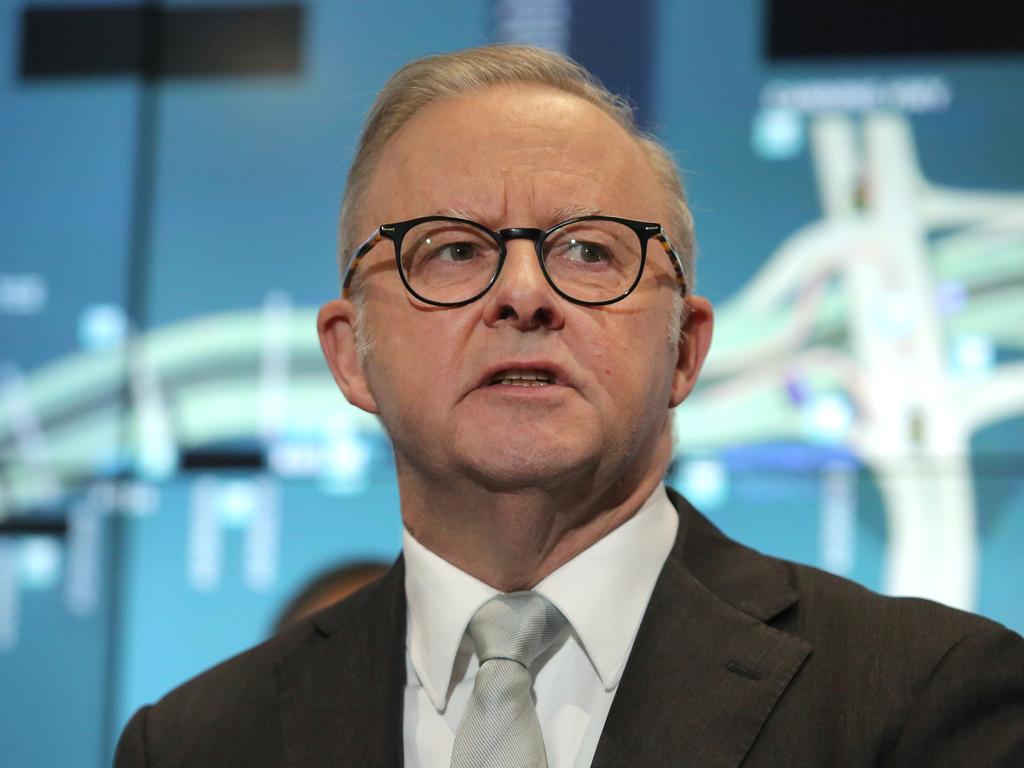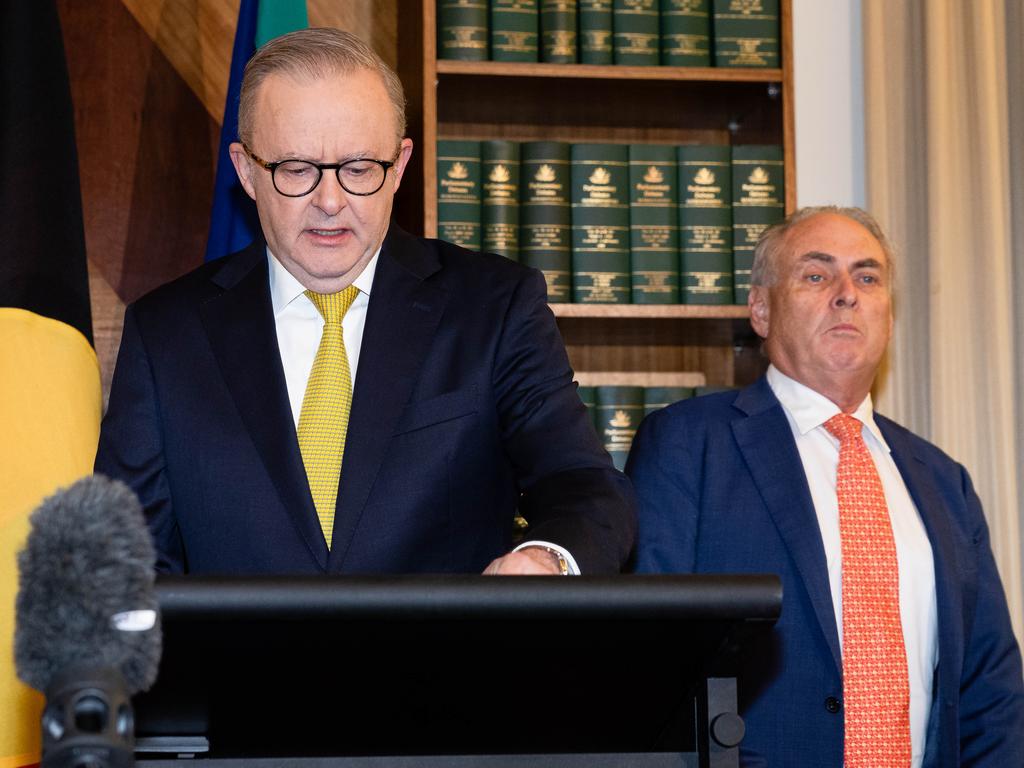Former trade minister urges Anthony Albanese not to ‘concede’ to Donald Trump on tariffs
Andrew Robb, the architect of multiple free-trade deals, has urged Anthony Albanese to focus on the nation’s shared history with the US in a potential meeting with Donald Trump.

The architect of multiple landmark free-trade agreements has urged Anthony Albanese to focus on the nation’s shared history with the US in a potential meeting with Donald Trump, declaring there was no basis on which Australia should be “conceding or negotiating” on tariffs.
Former trade minister Andrew Robb, who secured free-trade deals with China, Japan and South Korea, as well as the Trans-Pacific Partnership, said the Prime Minister needed to tell Mr Trump his decision to violate the agreement between the two countries without a phone call was “unacceptable”.
As Trade Minister Don Farrell advances negotiations for a free-trade agreement with the EU, Mr Robb said striking a “good deal” with Europe would counter Mr Trump’s protectionist agenda and demonstrate to the US the benefits of opening the world economy.
Mr Robb, trade minister from 2013-16, said the move to slap a 10 per cent baseline tariff on Australian exports to the US and 50 per cent on steel and aluminium was unjustifiable considering the two nations’ strong alliance and wartime history.
“I find it intolerable that all these things that have been imposed on us have occurred without even a phone call,” Mr Robb told The Australian.
“That’s what he should be saying to the President before those open discussions.
“We’ve got no need to negotiate on anything, we have been giving, and given to giving.”
The former Liberal MP, who also negotiated the Comprehensive Strategic Partnership with Singapore, said there was “no reason” behind the tariffs.
Though Mr Trump has complained the US had a trade deficit with many countries and used that as justification, Australia has historically imported more goods from America than it had exported.
“You do not treat friends as we’ve been treated,” Mr Robb said.
“You don’t make friends into supplicants, and that’s what’s happening.
“Where the big does what it wants, and the smaller takes it in the neck.
“I think that point has to be made: there is, on no basis, any good reason why we should be conceding or negotiating.
“We have done nothing wrong.”
After the tariffs reinvigorated efforts to secure an agreement with the EU, Mr Robb said he hoped this time negotiators would be able to resolve issues concerning agricultural market access that had sunk past attempts.
“There’s no point doing a bad deal just to get a deal done,” he said.
“We have to demonstrate to the US that there is still significant opportunity and also significant benefit from further opening up of our economies.
“Both the Europeans and ourselves need to show that we can further open up our economies to one another.
“So that’s not … just doing a deal for the sake of doing a deal. It’s got to be a good deal.”
The negotiations on an EU trade deal come as Mr Albanese prepares for a potential meeting with Mr Trump on the sidelines of the G7 summit in Canada this week, when he is expected to raise the US’s request for Australia to lift its defence spending and a carve-out from tariffs.
Senator Farrell on Sunday signalled that an EU agreement was in reach, declaring there was a “mood around the world to push the case for less protectionism and more free and fair trade”.
“There was a lot of goodwill in the air in Paris last week,” he told Sky News.
“I’m confident that if that goodwill continues, that we can secure a new free-trade agreement with the EU.”
Senator Farrell said he was pursuing the total removal by the US of all tariffs, and criticised the trade barriers as having “no justification”.
Universities Australia has called on Senator Farrell to raise membership of EU-linked research fund Horizon Europe as part of negotiations, after the US paused and suspended funding for Australian research projects.
UA chief executive Luke Sheehy met with officials from the European Commission and Australia’s EU ambassador, Angus Campbell, in Brussels on Friday to discuss how the nation could join.
International Education Association of Australia chief executive Phil Honeywood said while it was important to progress research collaborations with Europe, the nation had to foster close ties with its regional partners in Asia.
“With any move to get close alignment with our European colleagues, we’ve got to be very careful we don’t throw the baby out with the bath water,” he said. “In terms of losing sight of the crucial involvement we have with Asia-Pacific institutions, and the fact that a large amount of our research output is dependent on students from Asian countries.”






To join the conversation, please log in. Don't have an account? Register
Join the conversation, you are commenting as Logout